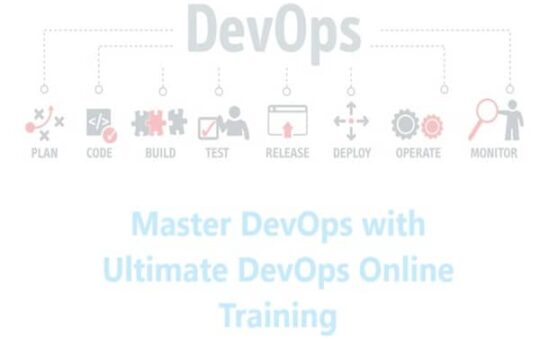Every website owner is looking for the best hosting option for their resource. Providers offer a choice between shared hosting, a virtual private server, and a dedicated server. Each of them has its own characteristics and advantages, so you should not be in a hurry to choose. It is necessary to weigh the pros and cons of all proposals.
And first of all I want to talk about shared hosting. This option is suitable for placing only those sites that do not count on a permanent increase in the number of visitors, or the peaks of traffic. It is good for blogs, one-page business card sites for introductory Web resources of small companies or private entrepreneurs. Shared hosting can not boast a high level of security, so you should not use it to post confidential information. It can meet the needs of a small site with low traffic.
Now we want to dwell on the virtual private and dedicated servers. What is the difference between these options, which is better, who is suitable for each of them? In this article we will try to answer the question: “Why do some large commercial companies and government agencies choose for their website UK dedicated server Hostzealot, abandoning the VPS, and others are satisfied with the capabilities of a dedicated private server?
Contents
Dedicated server and virtual private server: a comparison of the main characteristics
It is worth noting right away that a virtual private server (a separate volume with fixed parameters on the server) will cost less than renting a dedicated physical server. But the second option is more attractive in terms of security, uptime, and the highest manageability. In what cases is the savings justified? And when other characteristics are a priority?
Security
For companies that are interested in preserving the information that is on the site or that is routed between the server and the user’s browser, a dedicated server is best suited. It guarantees the highest possible level of security. The hardware is fully leased by the site owner, which excludes malicious neighbors. The site owner can easily provide a set of measures to protect the server from malicious software and hacker attacks.
This will be appreciated by owners of web resources that store, process, and transmit sensitive data. As an example, we can take the site of a bank, insurance company or state register with the personal data of citizens. A dedicated server is the best option for a store that accepts electronic payments and for a ticketing website, which can be paid for with a bank card.
Another option – VPS – cannot provide such a high level of security. After all, on the same physical hardware, although in restriction from each other, there are several sites of different owners. They have the same IP address. Therefore, if at least one of them for any reason causes suspicion of search engines, other web resources from its environment will be ranked worse. And the programs that could improve the security of the site is not always possible to install, because the virtual private server is not so flexible in settings. However, it does a pretty good job of dealing with a fairly high level of traffic. A reliable provider takes all measures to ensure the reliability of iron, saving the tenant from unnecessary costs and the need to maintain a large department of technical specialists.
Extensive customization options
A dedicated server is characterized by the flexibility of settings. The tenant chooses the operating system, software, applications, and more. A virtual private server cannot boast of this. Often the site owner has to adjust to the actual server environment: operating system, power, speed, and so on. Limitations may become an obstacle to the use of specific programs and special equipment. Hence the conclusion: if the standard settings are not enough for the successful and efficient operation of the site, you must choose a dedicated server. But if the resources provided by the provider are enough, there is no need to pay more. And we remember that a dedicated server will cost much more.
Dedicated IP address
As already mentioned, a dedicated server differs from a virtual private server in that it assigns a personal IP address to the user. This means that the site owner does not share an Internet Protocol Address with anyone. In the case of VPS, everything is not so great. A tenant of disk space on a physical server has the same address as other sites that are also renting virtual space. This may cause you to ruin the “reputation” if one of the neighbors turns out to be unreliable.
However, reliable providers check virtual private server tenants, so it is worth determining how important your own IP address is to you. After all, you have to pay for this preference.
Reliability
Reliability is important for any serious site. The web resource can not idle due to failure, as it will be negatively perceived by search engine crawlers. If you compare a dedicated server and a virtual private server, in terms of reliability, the first wins. This is due to the fact that all resources are concentrated for the needs of a single site. In the second case, they are shared between all tenants of disk space.
Also read: Why Use a Managed Cloud VPS for Your Website?
Managing
When renting a dedicated server, the owner of the site gets, in addition to complete freedom of configuration “baggage” – full administration. The hardware itself is served by the hoster, and the installation and reinstallation of the operating system, loading programs and applications becomes the prerogative of the user. These tasks will require the company to have a specialist on staff. The drawback is the need to pay the employee. The benefit is the ability to choose all server configurations and security measures.
If a virtual private server is leased, the user is often offered an operating system and some basic settings, which imposes certain restrictions. There is no need to maintain an extra staff member, as technical support is provided by the provider.
Table: Comparison of VPS and dedicated server by main parameters
| VPS | Dedicated Server | |
| Stability | +++ | +++++ |
| Price | +++ | +++++ |
| Scalability | +++ | +++++ |
| Costs of additional technical personnel | —- | +++ |
| Performance | +++ | +++++ |
| Security | +++ | +++++ |
| Independence | +++ | +++++ |
Who is right for a virtual private server, and who is right for dedicated hosting?
After analyzing all of the above, the user can determine which option suits them best.
For example:
- Virtual private server is good for a medium-sized project with the prospect of stable small growth. It is optimal for a site with 10 thousand daily users. The site owner will be able to easily manage information flows, and install software and applications based on the installed operating system.
- Dedicated server will meet the needs of large online businesses – a site with consistently high daily traffic (more than 10 thousand visitors). Relevant option of hosting when you need to install applications, specific programs, connecting additional equipment. The dedicated server is indispensable. When particularly important is the protection of stored and circulating data and the highest stability.


![Norske App Selskaper: Se Vr App Test Her [April 2022] Norske App Selskaper: Se Vr App Test Her [April 2022]](https://www.justechy.com/wp-content/uploads/2022/04/Norske-App-Selskaper-540x339.jpg)

